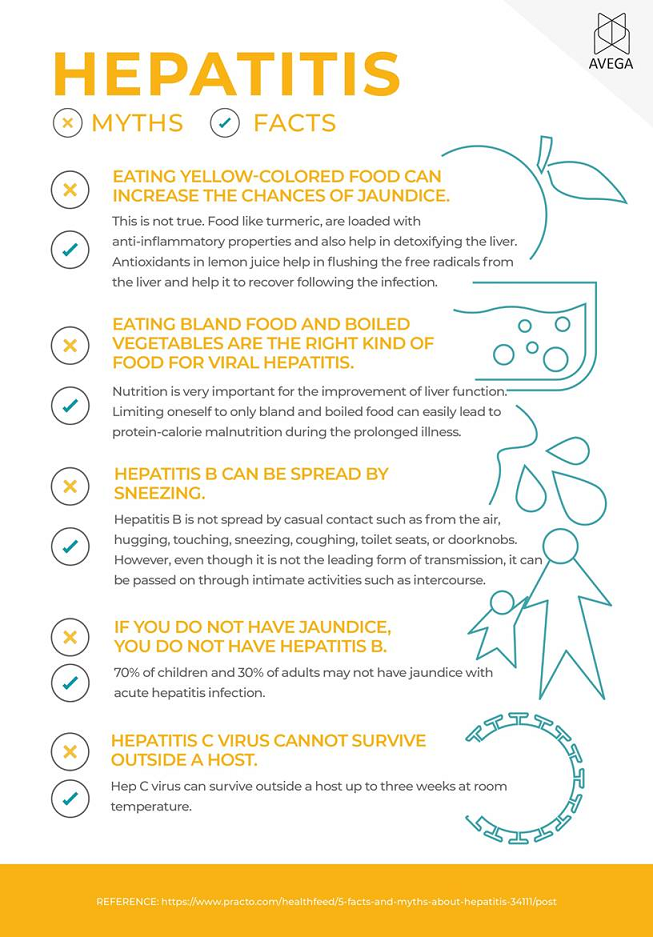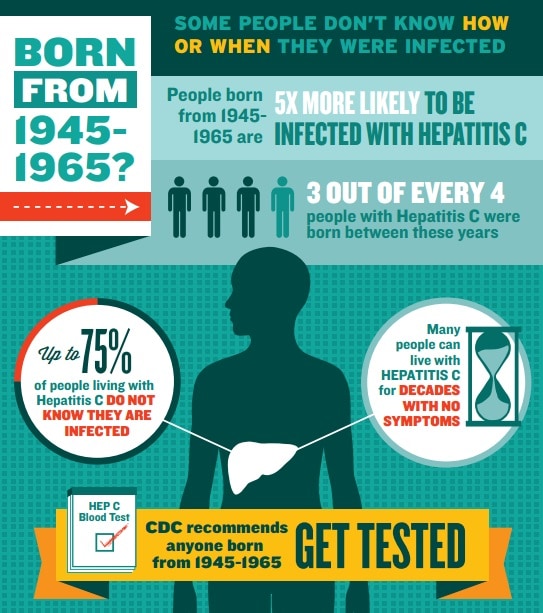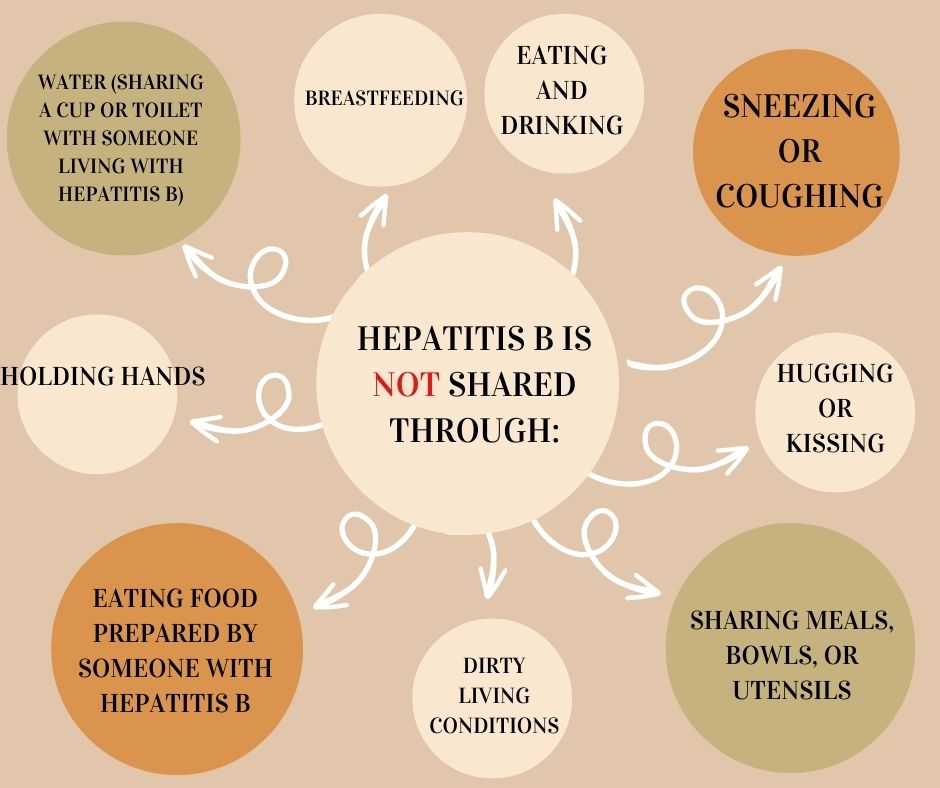Uncover the truth behind common myths about Hepatitis B in this eye-opening blog post that will challenge your beliefs.
Table of Contents
- Introduction: Understanding Hepatitis B
- Myth: Hepatitis B is always dangerous
- Fact: Acute vs. Chronic Hepatitis B
- Myth 2: A Hepatitis B vaccine isn’t necessary
- Fact 2: Benefits of the Hepatitis B Vaccine
- Myth 3: You can get hepatitis B from casual contact
- Fact 3: How Hepatitis B Spreads
- Myth: Only adults get Hepatitis B
- Fact 4: Hepatitis B in Children
- Myth: There’s no treatment for Hepatitis B
- Treatment Options for Hepatitis B
- How to Protect Yourself from Hepatitis B
- Conclusion: The Truth about Hepatitis B
- FAQs: Common Questions About Hepatitis B
Introduction: Understanding Hepatitis B
In this section, we will dive into the world of hepatitis B to understand what it is, why liver health is critical, and the significance of being aware of viral hepatitis.
What is Hepatitis B?
Hepatitis B is a virus that can affect the liver, a vital organ in your body. When someone has hepatitis B, it means that the virus has entered their body and is causing inflammation in the liver. This inflammation can sometimes lead to serious health problems.
Why Learn About It?
Learning about hepatitis B is essential for maintaining good health. Understanding how the virus spreads, the symptoms it can cause, and the ways to prevent it can help you protect yourself and those around you. Your liver plays a crucial role in keeping your body healthy, so knowing how to take care of it is important.
Myth: Hepatitis B is always dangerous
Many people believe that hepatitis B is always dangerous, but that’s not entirely true. Hepatitis B can be categorized into two types: acute and chronic hepatitis B. Acute hepatitis B is a short-term illness that occurs within the first few months of being infected. Most people with acute hepatitis B recover fully without any lasting liver damage. On the other hand, chronic hepatitis B is a long-term condition where the virus stays in the body for a prolonged period. While chronic hepatitis B can lead to serious liver problems if left untreated, not everyone with chronic hepatitis B will experience severe outcomes.
It’s important to understand the difference between acute and chronic hepatitis B to dispel the myth that all cases of hepatitis B are automatically dangerous. By knowing the distinctions between the two types and seeking appropriate medical care, individuals can manage their condition effectively and lead healthy lives.
Fact: Acute vs. Chronic Hepatitis B
When it comes to hepatitis B, not all cases are the same. It’s important to understand the difference between acute and chronic hepatitis B to grasp the full picture of this viral infection.

Image courtesy of via Google Images
Acute Hepatitis B
Acute hepatitis B is like a short-term visitor in your body. It comes, causes some trouble, but then leaves soon after. Just like when you catch a cold, your body fights off the hepatitis B virus, and most people recover completely in a few months.
During this phase, you might experience symptoms like fatigue, nausea, and jaundice (yellowing of the skin and eyes). But don’t worry, with rest and proper care, your body can kick the virus out!
Chronic Hepatitis B
Now, chronic hepatitis B is a different story. It’s like having an unwelcome guest that decides to stick around for a long time. If the hepatitis B virus lingers in your body for more than six months, it becomes chronic.
Unlike acute hepatitis B, chronic hepatitis B can stay hidden for years without showing many symptoms. This can be a bit sneaky because it might silently damage your liver over time. That’s why it’s crucial to get regular check-ups and follow your doctor’s advice if you have chronic hepatitis B.
Remember, acute hepatitis B is usually temporary, like a passing storm, while chronic hepatitis B requires ongoing care and monitoring to keep your liver healthy. But no matter which type you have, it’s essential to stay informed and work with your healthcare team to manage the virus and protect your liver!
Myth 2: A Hepatitis B vaccine isn’t necessary
Let’s clear up a common misunderstanding about hepatitis B: Some people think that getting a vaccine for it isn’t important. But that’s not true at all! In fact, getting the hepatitis B vaccine is super important for keeping you healthy.
Why Is the Hepatitis B Vaccine Important?
When you get the hepatitis B vaccine, it helps your body build up protection against the virus. This means that if you ever come into contact with someone who has hepatitis B, you’re less likely to get sick from it. It’s like having a shield that keeps you safe from getting the virus.
How Does the Hepatitis B Vaccine Work?
The hepatitis B vaccine is given as a shot, usually in a series of three doses. Each dose helps your immune system learn how to fight off the virus if it ever tries to attack your body. It’s kind of like training your body’s defenses to be super strong and ready to protect you.
This vaccine is recommended for everyone, including kids like you. By getting the hepatitis B vaccine, you’re taking an important step in keeping yourself healthy and safe from this virus. So remember, getting vaccinated is cool because it helps you stay strong and well!
Fact 2: Benefits of the Hepatitis B Vaccine
Have you ever wondered how a tiny vaccine can protect you from a big virus like hepatitis B? Let’s uncover the magical powers of the hepatitis B vaccine and how it keeps you safe.

Image courtesy of via Google Images
How the Vaccine Works
The hepatitis B vaccine is like a shield that trains your body to fight off the hepatitis B virus if it ever tries to attack. When you get the vaccine, your immune system learns how to recognize and defeat the virus, so it’s ready to defend you if you’re ever exposed to it.
Benefits of Getting Vaccinated
Getting the hepatitis B vaccine is super important because it helps keep you healthy and strong. Here are some cool benefits:
1. Protection: The vaccine prevents you from getting infected with hepatitis B, which means you don’t have to worry about feeling sick or passing the virus to others.
2. Peace of Mind: By getting vaccinated, you can relax knowing that your body is prepared to fight off the virus. No stress, no fear!
3. Healthy Liver: Since hepatitis B attacks the liver, getting vaccinated helps keep your liver safe and sound. It’s like giving your liver a superhero cape to stay strong!
So, the next time your doctor recommends the hepatitis B vaccine, remember that it’s like getting a special shield to protect you from a sneaky virus. Stay protected, stay healthy!
Myth 3: You can get hepatitis B from casual contact
Some people may think that you can catch hepatitis B just by being around someone who has it. But the truth is, hepatitis B is not spread through casual contact like hugging, sharing food, or playing with someone who has the virus.
So, if your friend or a family member has hepatitis B, you can still spend time with them and show them love and support without worrying about getting sick. It’s essential to understand that hepatitis B is spread through specific body fluids like blood, semen, or vaginal fluids that need direct contact to transfer the virus.
Fact 3: How Hepatitis B Spreads
Hepatitis B is a virus that can spread from person to person through specific ways. It’s essential to know how it can be transmitted to protect yourself and others.

Image courtesy of via Google Images
Direct Contact with Blood
The primary method of hepatitis B transmission is through contact with infected blood. This can happen if you share needles for injecting drugs, get a tattoo or piercing with unsterilized equipment, or come into contact with infected blood in any way.
Sexual Contact
Hepatitis B can also be spread through sexual contact with an infected person. It’s crucial to practice safe sex by using condoms to reduce the risk of transmission.
From Mother to Child
Another way hepatitis B can spread is from a mother to her baby during childbirth. If a pregnant woman has the virus, there’s a risk of passing it to her child. However, vaccination during pregnancy can prevent this transmission.
These are the main ways in which hepatitis B spreads between people. By understanding how the virus is transmitted, you can take steps to protect yourself and others from contracting it.
Myth: Only adults get Hepatitis B
It’s a common misconception that only adults can get Hepatitis B, but that’s not true at all. Hepatitis B can affect people of all ages, including children like you. It’s important to understand that this viral infection doesn’t discriminate based on age.
Children and Hepatitis B
Children can also be at risk of contracting Hepatitis B, especially if they come into contact with the virus through infected blood or body fluids. Since kids are generally more active and may have scrapes or cuts that can lead to exposure, it’s crucial to be aware of the risks.
Even though children may not exhibit symptoms right away, Hepatitis B can have long-term effects on their liver health if left untreated. That’s why it’s essential for parents and caregivers to be informed about this virus and take necessary precautions to protect their children’s health.
Remember, Hepatitis B doesn’t care how old you are – it’s important for everyone to be aware of the risks and take steps to prevent the spread of this virus.
Fact 4: Hepatitis B in Children
Did you know that children can also get hepatitis B? It’s not just something that affects adults. Even kids like you need to be aware of this virus and why taking care of your liver health is important.
| Myth | Fact |
|---|---|
| Hepatitis B is only transmitted through blood. | Hepatitis B can also be transmitted through bodily fluids, such as semen and vaginal fluids. |
| Hepatitis B is not a serious disease. | Hepatitis B can cause chronic liver infections, liver cirrhosis, and liver cancer if left untreated. |
| Hepatitis B vaccine is not necessary for adults. | The hepatitis B vaccine is recommended for adults, especially those at high risk of exposure to the virus. |
| Hepatitis B can be cured with antibiotics. | Hepatitis B is a viral infection and cannot be cured with antibiotics, but antiviral medications can help manage the infection. |

Image courtesy of via Google Images
How Hepatitis B Affects Children
When children get hepatitis B, it can make them feel sick, just like when you have a cold or the flu. The virus can attack their liver, which is a super important part of the body that helps with digestion and fighting off germs. Taking care of your liver means keeping your body healthy!
Why Liver Health Matters
Your liver works hard every day to keep you healthy. It’s like a superhero inside your body! When you have hepatitis B, it’s like a villain trying to attack your liver. That’s why it’s crucial to eat healthy foods, drink plenty of water, and get enough sleep to help your liver stay strong and fight off any bad guys like hepatitis B.
Myth: There’s no treatment for Hepatitis B
There is a myth that people might believe that there is no treatment available for Hepatitis B. However, this is not true. There are ways to manage this condition and take care of your health.
Treatment Options for Hepatitis B
When someone is diagnosed with Hepatitis B, they have several treatment options available to help manage the condition. These treatments are aimed at reducing liver inflammation, controlling the virus, and preventing long-term liver damage. Some common treatment options include:
- Antiviral Medications: These are medications that can help control the replication of the hepatitis B virus in the body, reducing the viral load and the risk of liver damage.
- Lifestyle Changes: Maintaining a healthy lifestyle, including eating a balanced diet, avoiding alcohol, and getting regular exercise, can help improve liver health and overall well-being.
- Monitoring and Regular Check-ups: It’s important for individuals with Hepatitis B to regularly see their healthcare provider for check-ups and monitoring of their liver function to detect any changes early.
While there is no cure for Hepatitis B yet, these treatment options can help individuals with the condition live a healthy life and prevent complications.
Treatment Options for Hepatitis B
Although there is no cure for Hepatitis B, there are treatment options available that can help manage the condition and improve quality of life. These treatments focus on reducing liver inflammation and preventing further liver damage.

Image courtesy of via Google Images
Antiviral Medications
One common treatment for Chronic Hepatitis B is antiviral medications. These drugs work by suppressing the replication of the virus in the body, helping to lower the viral load in the blood and decrease liver inflammation. While they may not completely eliminate the virus, they can effectively control it and prevent complications.
Liver Monitoring
Regular monitoring of liver function through blood tests and imaging studies is essential for managing Hepatitis B. This allows healthcare providers to track the progression of the disease, assess liver health, and make informed decisions about treatment adjustments when necessary.
Lifestyle Changes
Adopting a healthy lifestyle is crucial for individuals living with Hepatitis B. This includes maintaining a balanced diet, avoiding alcohol consumption, exercising regularly, and getting enough rest. These lifestyle changes can help support liver health and overall well-being.
Consulting a Specialist
It’s important for individuals with Hepatitis B to seek care from a healthcare provider who specializes in liver diseases. Hepatologists or gastroenterologists can provide expert guidance on managing the condition, monitoring liver health, and determining the most appropriate treatment plan for each individual.
By following these treatment options and working closely with healthcare providers, individuals with Hepatitis B can lead healthy and fulfilling lives while managing their condition effectively.
How to Protect Yourself from Hepatitis B
In order to stay safe and prevent contracting hepatitis B, there are a few simple steps you can follow. By taking these precautions, you can protect yourself and those around you from this liver infection.
Get the Hepatitis B Vaccine
One of the most effective ways to safeguard yourself against hepatitis B is by getting vaccinated. The hepatitis B vaccine helps your body develop immunity to the virus, making it less likely for you to get infected. It’s important to follow your healthcare provider’s recommendation and get all the necessary doses to ensure maximum protection.
Practice Good Hygiene
Practicing good hygiene habits can also help prevent the spread of hepatitis B. Make sure to wash your hands regularly with soap and water, especially after using the restroom and before eating. Additionally, avoid sharing personal items such as toothbrushes, razors, or needles with others to reduce the risk of transmission.
Avoid Risky Behaviors
Avoiding risky behaviors such as unprotected sex or sharing needles with others can significantly lower your chances of contracting hepatitis B. It’s important to always practice safe sex and never share needles, as these actions can put you at a higher risk of infection.
Be Informed
Knowledge is key when it comes to protecting yourself from hepatitis B. Make sure to educate yourself about the virus, how it spreads, and the importance of prevention. Being informed can help you make better decisions regarding your health and well-being.
By following these simple tips and staying informed about hepatitis B, you can take proactive steps to protect yourself and maintain good liver health. Prevention is always better than cure, so don’t hesitate to take action to keep yourself safe from this viral infection.
Conclusion: The Truth about Hepatitis B
Throughout this article, we have explored the important topic of hepatitis B and dispelled some common myths surrounding this virus. It’s crucial to understand that hepatitis B is a serious condition that can affect anyone, regardless of age. The key to combatting hepatitis B lies in being well-informed and taking proactive steps to protect yourself.
We learned that not every case of hepatitis B is dangerous, and it’s essential to differentiate between acute and chronic hepatitis B. Acute cases may resolve on their own, while chronic cases require ongoing monitoring and management. The good news is that there are treatment options available for those with chronic hepatitis B, and with proper care, the condition can be managed effectively.
One prevalent myth we addressed was the belief that a hepatitis B vaccine isn’t necessary. However, the truth is that the hepatitis B vaccine is a powerful tool in preventing the spread of the virus. By getting vaccinated, you not only protect yourself but also contribute to the community’s overall health by reducing the transmission of hepatitis B.
It’s also important to understand how hepatitis B spreads. While the virus is contagious, it cannot be transmitted through casual contact like hugging or sharing food. By knowing the facts about how hepatitis B is spread, you can dispel fears and misinformation that may lead to stigma and discrimination against those living with the virus.
Remember, taking care of your liver health is vital at any age. The liver plays a crucial role in maintaining your overall well-being, and keeping it healthy is essential in preventing liver diseases like hepatitis B. By practicing good hygiene, getting vaccinated, and seeking medical attention when needed, you can protect yourself and those around you from the dangers of hepatitis B.
By understanding the truth about hepatitis B and spreading awareness based on facts, we can work towards eradicating myths and misconceptions surrounding this virus. Knowledge is power, and by educating ourselves and others, we can create a healthier and more informed community.
FAQs: Common Questions About Hepatitis B
Can I play with my friend who has Hepatitis B?
Yes, you can still play with your friend who has Hepatitis B. It’s important to know that Hepatitis B is not spread through casual contact like playing, hugging, or sharing food. Hepatitis B is only spread through direct contact with infected blood, body fluids, or from a mother to her newborn during childbirth.
Do I really need a vaccine?
Yes, it’s essential to get the Hepatitis B vaccine, even if you feel healthy. The vaccine helps protect you from getting Hepatitis B in the future. By getting vaccinated, you’re not only keeping yourself safe but also helping prevent the spread of the virus to others.
What does the liver do?
Your liver is like a superstar in your body, working hard to keep you healthy. It helps with digestion by breaking down the food you eat, stores energy, and filters out toxins from your blood. In the case of Hepatitis B, a healthy liver is crucial as the virus attacks the liver, causing damage if left untreated. Taking care of your liver by eating healthy foods and getting regular exercise is essential for overall health.





